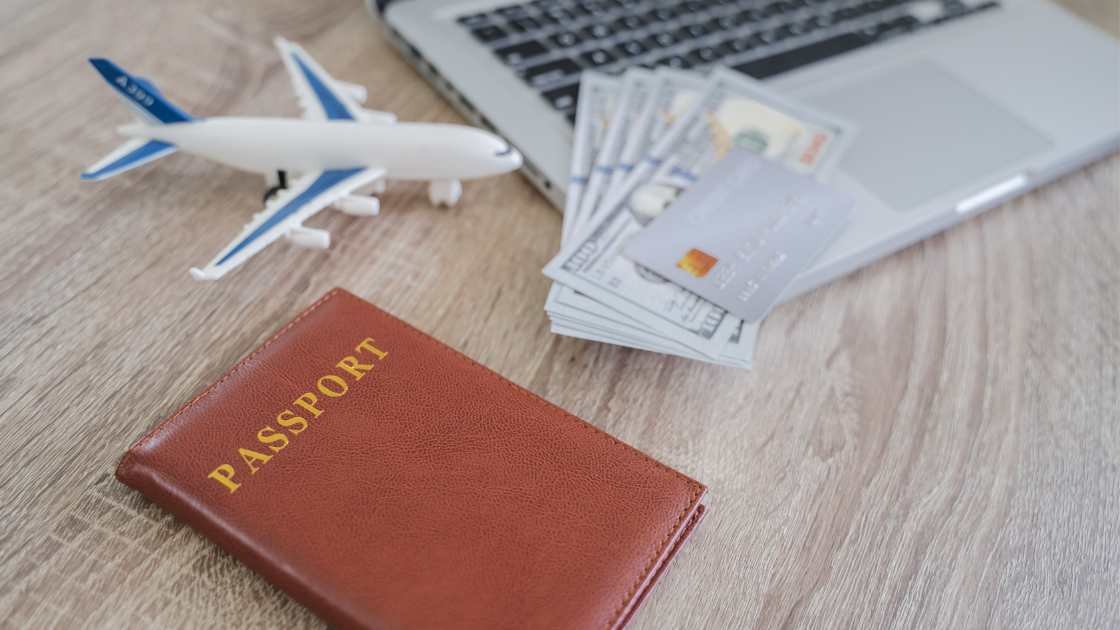To budget for an international trip, estimate expenses and allocate funds accordingly. Break down costs for flights, accommodation, daily activities, food, and emergencies.
Planning an international trip invokes excitement and a touch of anxiety, especially regarding finances. Savvy travelers know the secret to a successful adventure lies in meticulous budgeting.
A well-prepared budget ensures you cover all necessary expenses without compromising on the experiences you yearn for. I am wondering that How Do I Budget for an International Trip.
It entails forecasting the cost of flights, accommodations, attractions, meals, transportation, and a cushion for unexpected expenses. Smart budgeting also involves looking for deals and discounts, currency exchange rates, and considering travel insurance.
It’s about striking the right balance between frugality and indulgence, making sure your journey is as memorable as it is manageable.
With this financial roadmap, you can navigate the monetary aspects of your voyage, allowing you to fully immerse yourself in the cultural tapestry of your destination.
Table of Contents
Toggle- Global Adventures: Financial Preparation
- Destination Costs And Considerations
- Travel Documents And Insurance Costs
- Transportation: Navigating Airfare And Local Transit
- Accommodation Options To Suit Your Budget
- Smart Spending On Food And Drink
- Sightseeing Without Breaking The Bank
- Communicating Abroad: Cell Phones And Internet
- Managing Money And Currency Exchange
- Emergency Funds And Unexpected Costs
- Frequently Asked Questions On How Do I Budget For An International Trip?
- Conclusion
Global Adventures: Financial Preparation
Preparing financially for an international trip ensures a fulfilling journey without financial hiccups. Carefully planning a budget is vital. To manage finances effectively, adopt robust saving strategies and understand how to calculate your travel budget wisely.
Saving Strategies For Overseas Travel
- Create a dedicated savings account for your travel fund.
- Trim monthly expenses and redirect savings to your travel budget.
- Set up automatic transfers to your travel fund after each paycheck.
- Sell items you no longer need for extra travel cash.
- Look for a side hustle to boost your travel savings.
- Use reward points or miles from credit cards to cover flights or hotels.
Calculating Your Travel Budget: Tips And Tricks
| Expense Category | Details | Estimated Cost |
|---|---|---|
| Transport | Flights, trains, local transport | Cost varies by destination |
| Accommodation | Hotels, hostels, rentals | Research for best deals |
| Food | Dining out and groceries | Depends on local prices |
| Activities | Tours, tickets, experiences | Pre-book for discounts |
| Insurance | Travel and health coverage | Essential for emergencies |
| Emergency Fund | Unexpected expenses | Allocate a set amount |
Start by listing anticipated expenses. Research costs for your destination. Include daily spending, such as meals and activities. Factor in transportation, both international and local. Don’t forget travel insurance for peace of mind. Always have an emergency fund for unexpected events. Use budgeting apps or spreadsheets to track and adjust your budget as needed.
Destination Costs And Considerations
Planning an international trip requires destination costs. Costs can vary widely based on the country you choose. It’s not just about the ticket; there’s more to budget for. This section provides a rundown on counting every dollar and expecting the unexpected!
Country-specific Expenses To Note
Before jet setting, get familiar with your chosen destination’s expenses. Each country has unique costs to consider. This can include:
- Visa fees: Some destinations require a visa, adding to your budget.
- Transportation: Check taxi rates, public transport options, and car rental prices.
- Food costs: Dining out and grocery prices will affect your wallet.
- Accommodations: Price ranges differ from hostels to luxury hotels.
- Attractions: Entry fees to sites and tours can add up. Look for savings with tourist passes.
- Internet access: Roaming charges or local SIM card costs are a must-know.
- Tipping culture: Understand local customs to budget for gratuities.
Create a table with categories and allocate funds accordingly. Knowing where your money will go eases stress and prevents overspending.
Seasonal Price Fluctuations In International Travel
Timing impacts costs significantly. Be smart about when you travel. Here’s what you should note:
- Peak Seasons: Prices soar when demand is high, such as during holidays and summer months.
- Off-Season: Enjoy lower prices and fewer crowds in the off-season.
- Weather patterns: They influence activities and, therefore, prices.
Study yearly weather trends and peak travel times. An effective table can compare costs across different seasons. Adjust your travel dates to match your budget goals. Smart planning pays off with big savings.
Travel Documents And Insurance Costs
Preparing for an international trip requires careful planning, especially when it comes to travel documents and insurance costs. These critical components ensure that your journey abroad is not only legal but also protected against unexpected incidents.
Understanding and budgeting for passport and visa fees, alongside selecting the right travel insurance policy, are essential steps in your travel preparations.
Passport And Visa Fees
Securing a passport and obtaining the necessary visas are fundamental steps for international travel. These documents incur costs that vary depending on your country of citizenship and destination.
- Passport Application: The fee for a first-time applicant includes charges for the passport book, passport card, or both.
- Visa Expenses: Visa costs differ by destination and type of visa, from tourist to work visas.
- Additional Charges: Expedited services and photographs may add to your budget.
| Document | Cost |
|---|---|
| Passport Book | $110+ |
| Visa | $160+ |
Selecting The Right Travel Insurance Policy
Travel insurance is necessary to guard against risks while exploring new countries. Choosing the right policy depends on multiple factors.
- Assess Coverage Needs: Evaluate what risks you want to insure against based on activities and destinations.
- Compare Policies: Shop around to find the best coverage at a competitive price.
- Read Fine Print: Understand exclusions and limits before purchasing.
- Medical Emergencies: Ensure the policy covers hospital stays and treatments.
- Trip Cancellation: Look for coverage that reimburses non-refundable costs.
- Lost or Stolen Luggage: Find a policy that covers personal belongings losses.
Tip: Some credit cards offer travel insurance benefits. Check your card’s policy for potential savings.
Transportation: Navigating Airfare And Local Transit
Getting started on an international trip is thrilling! Planning is key. One of the most significant expenses is transportation. This includes flights and local travel. Let’s dive into savvy financial planning for your journey.
Finding Deals On International Flights
Securing affordable international flights is a major win. Start with flexible travel dates. Airfare prices fluctuate. Use flight comparison tools to pinpoint the best deals. Set up alerts for your desired routes. Early bookings often lead to savings. Consider off-peak seasons for even better prices.
- Use incognito browsing mode to search for flights.
- Book connecting flights separately to reduce costs.
- Explore airline rewards programs for potential discounts.
Public Transportation Expenses Abroad
Getting around in a new country doesn’t have to be pricey. Research is paramount. Learn about local transport options before landing. Buses, trains, and metros can be cost-effective.
| Transport Mode | Typical Cost | Tips |
|---|---|---|
| Buses | Low | Look for multi-ride discounts |
| Trains | Medium | Investigate rail passes for tourists |
| Metros | Low | Utilize daily or weekly passes |
Check for tourist travel cards that offer unlimited travel within a set period. These can dramatically reduce your travel costs. Avoid taxis when possible, as they are often the most expensive option.
Accommodation Options To Suit Your Budget
Choosing the right place to stay can make or break your international travel budget. Diverse accommodation options are available to cater to different financial plans. Whether you seek luxury or basic comfort, smart choices will ensure you maximize travel enjoyment while keeping expenses in check.
Hostels Vs Hotels: A Cost Comparison
Cost-conscious travelers often debate between hostels and hotels. The choice can significantly affect your budget. In general, hostels offer:
- Social atmosphere with shared spaces
- Lower prices compared to hotels
- Dormitory-style rooms or private rooms for higher fees
Hotels, on the other hand, provide:
- Private accommodation with amenities
- Room service and onsite facilities
- Varying price points from budget to luxury
| Accommodation Type | Average Cost per Night | Additional Benefits |
|---|---|---|
| Hostel | $15-$50 | Free WiFi, communal kitchen, social events |
| Hotel | $50-$250+ | Privacy, room service, fitness center |
The right choice depends on your travel goals, desired comfort levels, and financial boundaries.
The Rise Of Short-term Rental Platforms
Short-term rental platforms like Airbnb and VRBO have changed how we stay abroad. They offer:
- A wide range of properties to fit any budget
- The comfort of home-like amenities
- Opportunities to stay in local neighborhoods
Short-term rentals can be cost-effective, especially:
- For group travels where costs are shared
- With included kitchens to reduce dining out expenses
- During extended stays, leading to potential discounts
Evaluating guest reviews and location can ensure a positive experience that aligns with your spending plan.
Smart Spending On Food And Drink
Starting on an international journey brings the excitement of exploring new tastes and cuisines.
Yet, food and drink expenses can quickly eat into your travel budget.
Strategic planning can lead to significant savings, leaving more funds for experiences and souvenirs.
Discover how to savor local flavors without breaking the bank.
Dining Out Versus Cooking In
Choosing where to eat is a key decision for any budget-minded traveler. Let’s compare the options:
| Dining Out | Cooking In |
|---|---|
| Experience local restaurants | Shop at supermarkets |
| Higher cost but convenient | Lower cost, more effort |
| Sample authentic dishes | Control over ingredients |
- Tip: Balance meals out with simple home-cooked dishes.
- Save: Enjoy one restaurant meal a day and cook the rest.
Local Markets: A Guide To Eating On A Budget
Local markets are treasure troves for budget-friendly eating. Follow these steps:
- Identify nearby markets using a map or local guide.
- Visit during early hours for the best selection.
- Seek out fruits, vegetables, and local specialties.
- Ask locals for tips on the best deals and must-try foods.
Budget wins: Purchase fresh ingredients at lower prices. Try unique and authentic foods that cost less.
Sightseeing Without Breaking The Bank
Sightseeing is a key part of any international trip. Yet, experiencing new locales doesn’t mean emptying your wallet. Thrifty planners, rejoice! You can explore the wonders of the world and keep a healthy travel fund. The key lies in smart attraction choices and finding great deals.
Free Attractions And Nature’s Wonders
Make the most of your journey with free local spots. Many cities boast free public attractions that offer a peek into local culture and history. Look for walking tours, historical landmarks, and public art displays at no cost.
- Museums: Many have free entry days.
- Parks: Perfect for picnics and people-watching.
- Landmarks: Some iconic sights are free to admire.
Don’t forget nature’s offerings. Parks, beaches, and forests often require no fees. Here, beauty and adventure are entirely free.
Tourist Passes And Discounted Entry Fees
Smart travelers save with tourist passes and discounts. Cities often offer cards that bundle several attractions at a lower cost. Research pass options that match your itinerary:
| Type of Pass | Features |
|---|---|
| City Tourist Pass | Multiple attractions, public transport, discounts |
| Museum Pass | Access to various museums over several days |
| Day Pass | Unlimited entries to attractions for one day |
Many attractions cut entry fees at certain times. Late afternoons or weekdays often mean cheaper tickets. Students, children, and seniors typically get discounts. Always carry ID to prove eligibility.
Communicating Abroad: Cell Phones And Internet
Beginning on an international trip brings the excitement of exploring new places. Yet, staying in touch with loved ones back home is important. Understanding cell phone and internet options is essential for seamless communication while traveling. This guide will explore cost-effective ways to keep connected abroad without breaking the bank.
International Phone Plans Versus Local SIM Cards
Should you opt for an international plan or a local SIM card? This choice can significantly affect your budget and convenience.
| International Phone Plans | Local SIM Cards |
|---|---|
| Offered by your current provider. Check for roaming fees. | Purchased in the destination country. Offers local rates. |
| Ease of keeping your number. | Requires an unlocked phone. |
| May be costly. | Typically a more affordable option. |
Analyze your needs and compare providers to decide the best fit for your travel.
Finding Wi-fi: Staying Connected For Less
Wi-Fi is the key to saving on data costs while traveling. Here’s how to stay online for less:
- Look for hotels or accommodations offering free Wi-Fi.
- Use Wi-Fi in cafes or public spaces, but remember security practices.
- Offline maps and guides reduce the need for constant connection.
With these tips, you can enjoy your travels without worrying about excessive fees or being out of touch.
Managing Money And Currency Exchange

An international trip requires careful financial planning. One of the key components is Managing Money and Currency Exchange. Effectively handling your travel funds ensures a smooth and enjoyable journey without the stress of unexpected expenses. Let’s delve into strategies for minimizing fees and making the most of your financial resources abroad.
Avoiding High Fees: When To Exchange Currency
Exchanging currency can be tricky. Timing is essential. To sidestep steep fees:
- Monitor exchange rates months in advance.
- Exchange at credit unions or local banks for better rates.
- Avoid airport kiosks; they often charge more.
Be prepared before you leave. Consider getting a small amount of foreign currency to cover initial costs upon arrival, like transportation from the airport.
Credit Cards And Atms: Use Abroad
Credit cards and ATMs offer convenient access to funds and usually better exchange rates. Yet, there are tips to use them wisely:
- Opt for credit cards with no foreign transaction fees.
- Inform your bank about travel plans.
- Withdraw larger amounts to reduce ATM fees.
Always have local cash as not all places accept cards. Research your destination to know the best payment methods available.
Emergency Funds And Unexpected Costs
Traveling across borders is an adventure that often comes with its own set of surprises. Planning for emergency funds and unexpected costs ensures you can handle any curveball thrown your way. This crucial step keeps your dream vacation from turning into a financial nightmare.
Allocating Extra Cash For The Unforeseen
Smart travelers always stash extra cash for unforeseen events. You might miss a connection or face unexpected delays. Here’s how to set aside an emergency budget:
- Identify potential surprises such as flight changes, health issues, or lost passports.
- Determine a safety net amount. Aim for an extra 10-20% of your total trip budget.
- Splits your emergency fund between accessible bank accounts and physical cash.
Consider the unpredictable nature of exchange rates and banking access in foreign countries when setting your budget.
Dealing With Financial Emergencies While Overseas
Should an emergency arise, knowing how to manage it is key. Overseas, your regular support systems might not be readily available.
- Contact your bank before you leave to inform them of your travel plans.
- Carry multiple forms of payment, including credit cards and electronic bank transfers.
- Know your card’s emergency services as some offer complimentary travel insurance and support.
Investigate local emergency services in your destination before departure. Keep contacts for your country’s embassy within reach.
Frequently Asked Questions On How Do I Budget For An International Trip?
How Much Should I Save For A Global Trip?
When budgeting for an international trip, aim to save enough to cover flights, accommodations, food, activities, and emergencies. This often ranges from $2,000 to $5,000 per person, depending on destination and travel style.
What’s The Best Way To Track Travel Expenses?
Utilize budget-tracking apps or spreadsheets to monitor your travel expenses. Track pre-trip costs like visas and insurance as well as daily spending on your trip to stay within budget.
How Do I Find Affordable Flights?
To find affordable flights, book in advance and be flexible with your travel dates. Use flight comparison websites or alerts from airline apps to snag deals when prices drop.
Is Travel Insurance Worth The Cost?
Yes, travel insurance is worth the cost for international trips. It protects against trip cancellations, medical emergencies, and lost luggage, potentially saving you thousands in unforeseen expenses.
Conclusion
An international journey requires thoughtful budgeting. By prioritizing expenses, researching costs, and allocating savings, you set the stage for an incredible adventure. Remember, smart financial planning turns dream vacations into reality. Start planning today to create unforgettable memories tomorrow.
Safe travels and happy budgeting!







